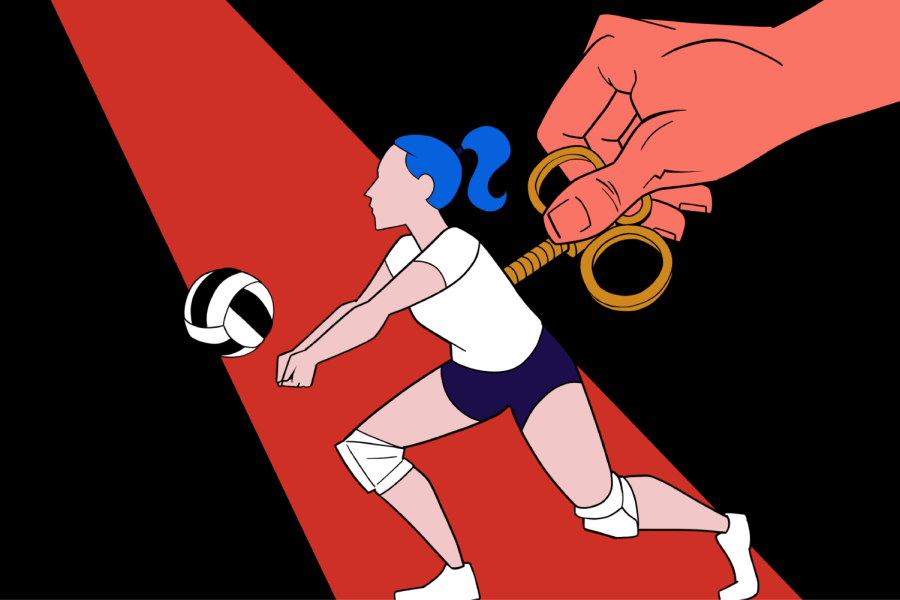OPINION: All play, no work isn’t the way to go for student athletes
December 4, 2021
 Student-athletes is a term used to describe the priorities of those who play college sports — a student with classes first and then an athlete. The NCAA restricts student-athletes in season practice to 20 hours a week.
Student-athletes is a term used to describe the priorities of those who play college sports — a student with classes first and then an athlete. The NCAA restricts student-athletes in season practice to 20 hours a week.
However, the schedule of student-athletes like myself suggests otherwise. During volley- ball season this fall, I found myself spending all my time devoted to volleyball and therefore no time for school.
The beginning of the season is usually intense and a grind to get through. Two-a-days, a schedule where we have two practices a day for the first week are common, and practices would be scheduled with a designated break in between.
On some days we were also supposed to go to the weight room afterward. We were scheduled to be done at 6:30 p.m., but I detected a problem when we weren’t leaving school until 8:30 p.m.
I came from a highly-ranked and competitive 6A/5A high school volleyball program that also took part in two-a-days. Although intense, practices were efficient and productive — they took care of what needed to be done while still leaving free time to get other things done.
This way of doing volleyball is all I ever knew, so when our schedule didn’t go as planned this fall, at the expense of my free time, I was shocked.
Fortunately, this two-a-day schedule took place before school started, because keeping up with school on top of that would have been nearly impossible. However, even when school started and we were only practicing once a day, the team and I found ourselves still at practice when the schedule said we were supposed to be done hours ago. For some of the players, especially those with a job, this schedule was debilitating.
The NJCAA and NCAA apply clearly- defined limits to how many hours athletes are allowed to practice, but it doesn’t take into consideration the hours spent outside of that prepping for the season, playing games, team meetings and extra workouts — all of which coaches suggest to athletes who want to keep up and stay in the program.
From personal experience playing volleyball in high school, things like summer volleyball camps, extra work before or after practice and strength and conditioning were heavily suggested to even be considered to play once the season started..
This type of commitment leaves almost no time for student-athletes to have a life outside of their sport, let alone time for school. When having time for relationships, work, fitness, health and emotional well-being are seen as necessary to living your best life, this schedule is unrealistic. You have no time to work on yourself.
Most student-athletes are aware of the time commitment for their sport and must balance their school schedule before they even agree to play in college. However, time for student-athletes to be by themselves and away from their sport, at any level, is essential to their well-being. Otherwise, they’d spend all their time playing sports with no time to work on themselves.
— Alli Paveglio is a contributor and a science and journalism major



